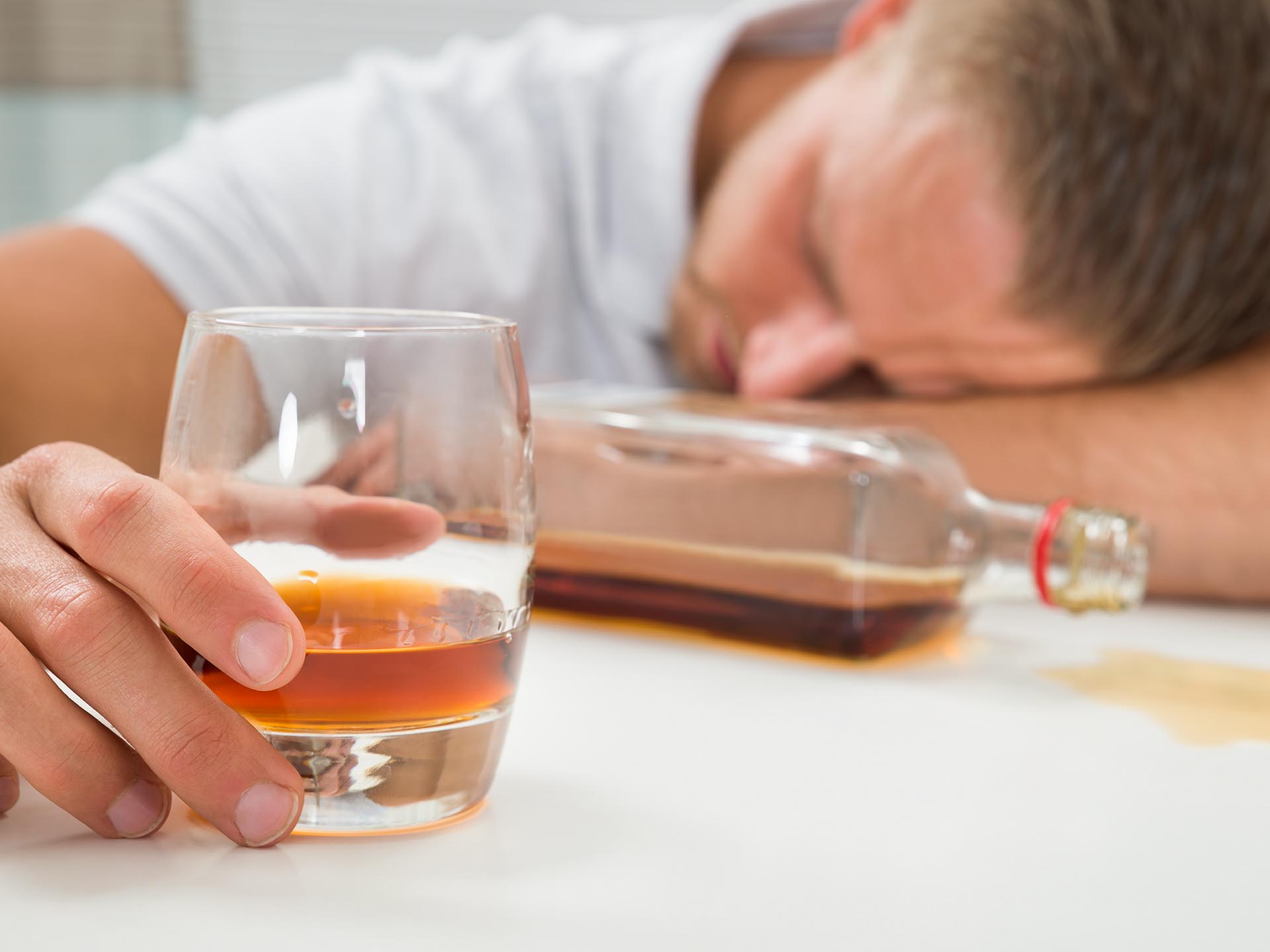Causes and risk factors
As the name suggest consuming excess of alcohol is the main cause. It comprises of consuming alcohol both in terms of amount and frequency.
Clinical presentation:
Symptoms of alcohol are seen both at the level of mind and physic. Symptoms vary as per the amount of alcohol consumed. Various symptoms like nausea, vomiting, loss of appetite, fatigue, headache, insomnia, sweating, trembling is seen. Staggering gait is seen. At the level of the mind euphoria is the first symptom seen. The person feels relaxed. The talk is incoherent. Irritability is seen. The person tends to neglect responsibilities, the work and personal relation is hampered. At times it also leads to increase risk of getting involved in illegal issues like harsh driving being dunked, use of other illegal substances like drugs etc. Hallucination, confusion and agitation are the other symptoms seen. It can lead to several complications like liver affection, pancreatitis, chronic gastritis, infertitility and even cancers. Alcohol withdrawal syndrome involves brain leading to encephalopathy and in severe cases an alcoholic may land up in irreversible brain damage.
Investigations:
Diagnosis is done on the basis of the symptoms narrated by the patient and the physical examination carried out by the doctor. There is no specific test for diagnosing alcoholism; however the Blood alcohol content is one of the common tests suggested. Certain questions in form of a questionnaire can be given by the doctor who can help him to assess the intake of alcohol.
Treatment:
Usually an alcohol addict does not realize the need for medical intervention; however in such cases initiation for medical treatment should be extended by the family members. Adoption of Detoxification program for withdrawal of alcohol is the main line of treatment. Ant abusive oral drugs or injected medications are started. Counseling plays a major role. Support from family and friends should be extended. Measure to manage stress, inculcating meditational and spiritual support, getting involved in positive recreational activity are the certain steps to be implemented.
Other Modes of treatment:
Certain other modes of treatment can also be helpful in coping up the symptom. Taking into consideration the symptoms in holistic way, homoeopathy can offer a good aid for the relief of the symptoms. It is also effective for deaddiction.
Recent update:
University of Iowa Health Care have published that here is good evidence from studies of families and twins that genetics plays an important role in the development of alcoholism. However, hundreds of genes likely are involved in this complex disorder, with each variant contributing only a very small effect. Thus, identifying individual risk genes is difficult.






























